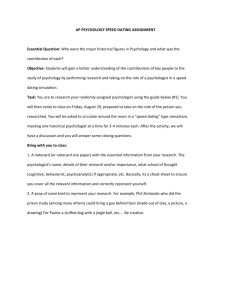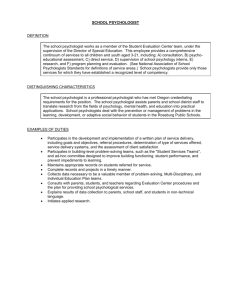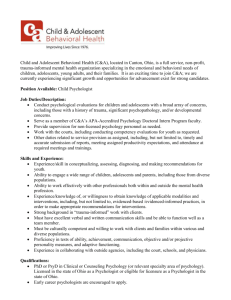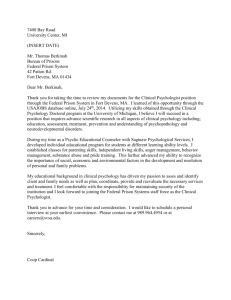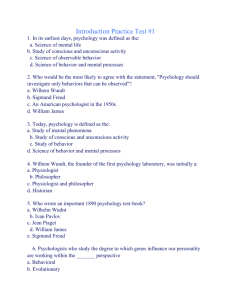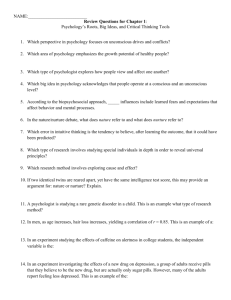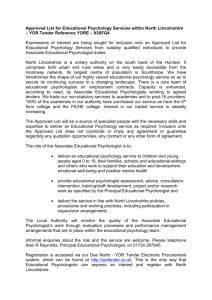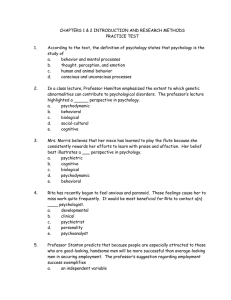Psychology Unit One Test Review
advertisement
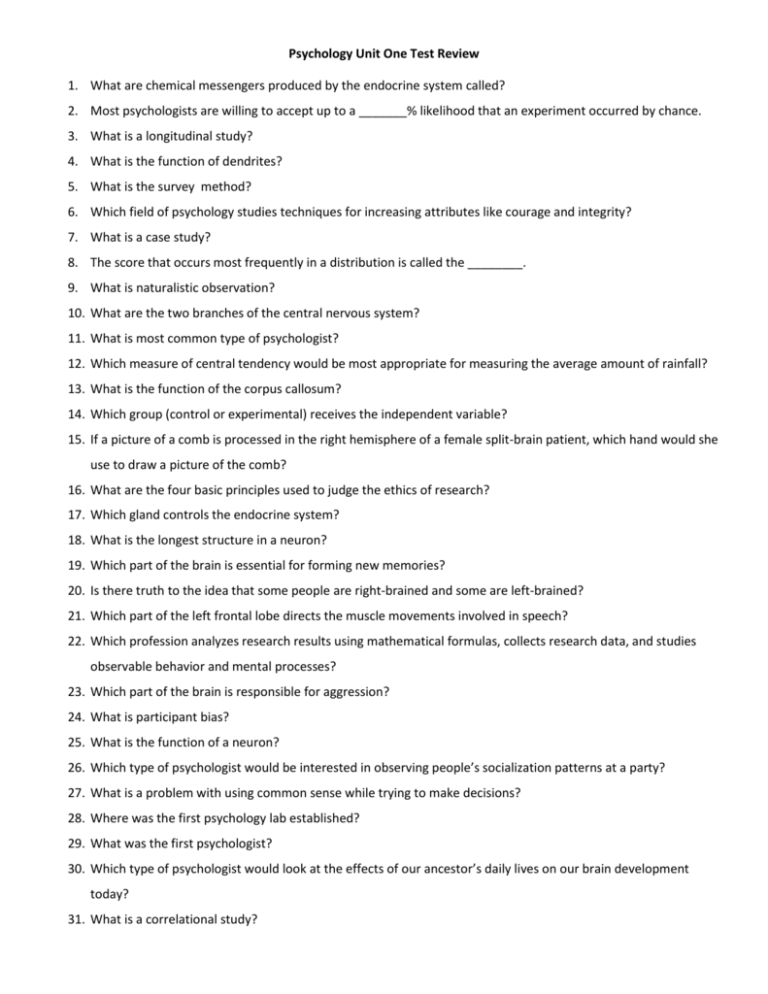
Psychology Unit One Test Review 1. What are chemical messengers produced by the endocrine system called? 2. Most psychologists are willing to accept up to a _______% likelihood that an experiment occurred by chance. 3. What is a longitudinal study? 4. What is the function of dendrites? 5. What is the survey method? 6. Which field of psychology studies techniques for increasing attributes like courage and integrity? 7. What is a case study? 8. The score that occurs most frequently in a distribution is called the ________. 9. What is naturalistic observation? 10. What are the two branches of the central nervous system? 11. What is most common type of psychologist? 12. Which measure of central tendency would be most appropriate for measuring the average amount of rainfall? 13. What is the function of the corpus callosum? 14. Which group (control or experimental) receives the independent variable? 15. If a picture of a comb is processed in the right hemisphere of a female split-brain patient, which hand would she use to draw a picture of the comb? 16. What are the four basic principles used to judge the ethics of research? 17. Which gland controls the endocrine system? 18. What is the longest structure in a neuron? 19. Which part of the brain is essential for forming new memories? 20. Is there truth to the idea that some people are right-brained and some are left-brained? 21. Which part of the left frontal lobe directs the muscle movements involved in speech? 22. Which profession analyzes research results using mathematical formulas, collects research data, and studies observable behavior and mental processes? 23. Which part of the brain is responsible for aggression? 24. What is participant bias? 25. What is the function of a neuron? 26. Which type of psychologist would be interested in observing people’s socialization patterns at a party? 27. What is a problem with using common sense while trying to make decisions? 28. Where was the first psychology lab established? 29. What was the first psychologist? 30. Which type of psychologist would look at the effects of our ancestor’s daily lives on our brain development today? 31. What is a correlational study? 32. Why do researchers use a double-blind procedure? 33. What is the mathematical average of a distribution called? 34. What are the benefits of using animals instead of humans in psychological research? 35. Why are psychologists interested in Phineas Gage? 36. What is a cross-sectional study? 37. What is confirmation bias? 38. What is contemporary psychology? 39. Which part of your nervous system would be triggered by being robbed? 40. What is the oldest and central core of the brain? 41. Which part of the brain is responsible for wakefulness and arousal? 42. Which brain structure receives information from all the senses except smell? 43. Which part of the brain receives information from all the senses except smell? 44. Which part of the brain controls your thirst, hunger, and internal body temperature? 45. Which part of the brain is responsible for decision making? Short Answer: Professor Perry is interested in testing whether the amount of time a person spends with children affects his or her attitudes toward having children of their own. She randomly chooses a sample and randomly assigns them to one of two groups. Group 1 spends 5 hours a day for a week with a group of children. Group 2 spends 1 hour a day for a week with the same group of children. At the end of the week, Professor Perry measures their attitudes with a survey. Write an essay about this study that answers the following questions: A What type of research study did Professor Perry use? (for example, case study, naturalistic observation, correlation, or experiment) B What was the independent variable in the study? C What was the dependent variable in the study? D How did Professor Perry operationally define the dependent variable in the study? E Also, please discuss any potential ethical considerations for this research.


